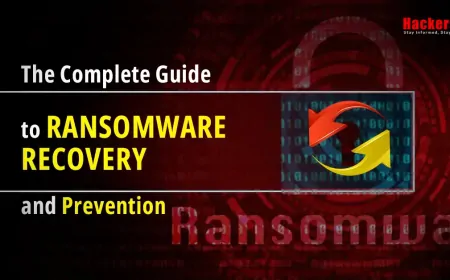What Are the Key Global Agreements on Cybersecurity You Should Know?
In today's world, where our lives are intertwined with the digital realm—from online banking to social media—cyber threats loom larger than ever. Imagine a hacker in one country stealing data from millions across the globe, or a ransomware attack crippling hospitals worldwide. These aren't just plotlines from thrillers; they're real challenges that demand global solutions. That's where international agreements on cybersecurity come into play. These pacts aren't dusty documents; they're living frameworks that help nations team up against digital dangers. They set standards, encourage cooperation, and protect our online world. Whether you're a student, a business owner, or just someone who uses the internet daily, understanding these agreements can empower you to navigate the cyber landscape more safely. In this post, we'll explore the key global agreements, breaking them down simply, with explanations for any tricky terms. By the end, you'll see why these deals matter and how they're shaping a more secure future.

Table of Contents
- Understanding Cybersecurity Agreements
- The Budapest Convention: A Cornerstone
- The UN Convention Against Cybercrime
- Regional Agreements: Examples from Around the World
- Other Important Global Initiatives
- The Impact of These Agreements
- Challenges and Future Directions
- Conclusion
- Frequently Asked Questions
Understanding Cybersecurity Agreements
Cybersecurity agreements are basically promises between countries to work together on protecting digital spaces. Think of them as international rules of the road for the internet. They cover things like fighting cybercrime illegal activities online, such as hacking or spreading viruses and ensuring data privacy. These agreements help because cyber threats don't respect borders; a virus created in one nation can spread globally in seconds.
Why do we need them? Well, without common standards, it's chaos. One country might have strict laws against data theft, while another has none, creating safe havens for criminals. Agreements harmonize laws, meaning they make them similar across nations, so everyone plays by the same rules. They also promote sharing information about threats and helping each other investigate crimes.
These pacts come in different forms: treaties, which are binding legal documents; conventions, similar to treaties; and non-binding agreements, like guidelines that countries can choose to follow. Some focus on crime, others on warfare or data protection. As of 2025, with cyber attacks costing trillions annually, these agreements are more vital than ever.
Let's dive into the major ones. We'll start with the oldest and most influential, then move to newer developments. Along the way, I'll explain terms like "ratification," which means a country officially agrees to follow the agreement.
These agreements aren't perfect they evolve with technology but they represent humanity's collective effort to tame the wild west of the web.
The Budapest Convention: A Cornerstone
The Budapest Convention, officially the Council of Europe Convention on Cybercrime, is like the grandparent of global cybersecurity agreements. Opened for signature in 2001, it's the first international treaty specifically tackling cybercrime. Created by the Council of Europe, an organization promoting human rights and democracy, it's open to countries worldwide, not just Europe.
Its main goal? To make fighting cybercrime easier by getting countries on the same page. It defines crimes like illegal access to computers (hacking), data interference (deleting or altering data), and system interference (like denial-of-service attacks that crash websites).
Key provisions include requiring countries to criminalize these acts in their laws, improve investigative powers (like preserving digital evidence), and cooperate internationally think sharing info or extraditing suspects. There's also an additional protocol from 2003 on racist and xenophobic acts online, and a second one in 2022 for better electronic evidence sharing.
As of 2025, over 80 countries have ratified it, including the US, Japan, and many in Europe. Its impact? It's helped in countless investigations, like busting international hacking rings. But critics say it needs updates for new threats like AI-driven attacks.
This convention sets a benchmark, showing how global teamwork can make the internet safer for everyone.
The UN Convention Against Cybercrime
Fast forward to 2024, and we have the United Nations Convention against Cybercrime, a fresh global pact adopted by the UN General Assembly. This one's a big deal because it's under the UN, involving nearly all countries, and aims to strengthen cooperation against crimes using information and communication technologies.
Why now? Cybercrime is booming, with scams, ransomware, and data breaches hitting everywhere. The convention criminalizes core cyber-dependent crimes like hacking and malware distribution and some cyber-enabled ones, like online fraud. It emphasizes human rights, ensuring investigations don't trample on privacy.
Key features: It sets up a platform for collaboration, including evidence sharing and technical assistance for developing countries. As of 2025, ratification is ongoing, but it's expected to become a cornerstone for global efforts.
Unlike the Budapest Convention, which some countries see as too Western-focused, this UN version includes input from diverse nations, making it more inclusive. However, concerns linger about potential misuse for surveillance.
This agreement highlights the UN's role in addressing borderless threats, paving the way for a united front.
Regional Agreements: Examples from Around the World
While global pacts are crucial, regional agreements tailor solutions to specific areas. Let's look at a few.
The African Union Convention on Cyber Security and Personal Data Protection, or Malabo Convention (2014), focuses on Africa. It covers cybercrime, data protection, and e-transactions. Key provisions: Criminalizing acts like computer fraud and requiring data privacy laws. As of 2025, several African states have ratified it, boosting regional security.
In Europe, besides Budapest, there's the EU's NIS Directive (Network and Information Systems), updated in 2022, mandating security for critical sectors like energy and health.
Asia has frameworks like the ASEAN Declaration on Cybersecurity Cooperation (2018), promoting info sharing and capacity building among Southeast Asian nations.
The Shanghai Cooperation Organization (SCO) has agreements on information security, involving countries like China and Russia, emphasizing state sovereignty in cyberspace.
These regional efforts complement global ones, addressing local needs while aligning with broader standards.
Other Important Global Initiatives
Beyond treaties, there are non-binding initiatives worth knowing.
The Paris Call for Trust and Security in Cyberspace (2018) is a high-level declaration supported by over 1,000 entities, including governments and companies. It promotes norms like protecting civilians from cyber attacks.
UN Group of Governmental Experts (GGE) reports outline voluntary norms, like not targeting critical infrastructure during peacetime.
The Global Forum on Cyber Expertise (GFCE) helps build capacity worldwide.
These aren't laws but influence policy and foster dialogue.
To summarize key agreements, here's a table:
| Agreement Name | Year | Issuing Body | Main Focus | Parties (approx. as of 2025) |
|---|---|---|---|---|
| Budapest Convention | 2001 | Council of Europe | Cybercrime harmonization and cooperation | 80+ |
| UN Convention Against Cybercrime | 2024 | United Nations | Global cooperation against cybercrimes | Ratification ongoing |
| Malabo Convention | 2014 | African Union | Cyber security and data protection in Africa | Several African states |
| Paris Call | 2018 | Multi-stakeholder | Trust and security norms | 1000+ supporters |
The Impact of These Agreements
These agreements have real-world effects. They've led to arrests in international operations, better laws in many countries, and increased awareness. For instance, Budapest has facilitated evidence sharing in thousands of cases.
They also build capacity helping poorer nations develop cyber defenses through training and aid.
On the flip side, they promote human rights by balancing security with privacy.
Overall, they've reduced some cybercrimes by deterring bad actors and fostering trust.
Challenges and Future Directions
Challenges include uneven ratification some countries lag behind. Geopolitics play a role; tensions can hinder cooperation.
Technology outpaces agreements; AI and quantum computing need addressing.
Future? More inclusive pacts, like expanding the UN convention, and integrating private sector input.
As 2025 unfolds, watch for updates in these areas.
Conclusion
To wrap up, key global agreements like the Budapest and UN Conventions are essential tools in our fight for a secure cyberspace. They harmonize laws, boost cooperation, and protect rights amid rising threats. From regional pacts to initiatives like the Paris Call, they show collective action works. While challenges remain, their impact is undeniable, making the digital world safer. Stay informed these agreements affect us all. Knowledge is your first line of defense.
Frequently Asked Questions
What is cybersecurity?
Cybersecurity is protecting computers, networks, and data from digital attacks like hacking or viruses.
Why are global agreements needed?
Cyber threats cross borders, so countries must collaborate to fight them effectively.
What is the Budapest Convention?
It's a 2001 treaty harmonizing cybercrime laws and promoting international cooperation.
How many countries are in the Budapest Convention?
Over 80 as of 2025.
What does the UN Convention Against Cybercrime cover?
It criminalizes cybercrimes and fosters global cooperation, adopted in 2024.
Is the UN Convention ratified yet?
Ratification is ongoing in 2025.
What is the Malabo Convention?
A 2014 African Union agreement on cyber security and data protection.
What is the Paris Call?
A 2018 declaration for trust and security in cyberspace, supported by many.
Do these agreements prevent all cyber attacks?
No, but they reduce risks and aid responses.
What is ratification?
When a country officially agrees to follow a treaty.
How do agreements help investigations?
They enable evidence sharing and extradition.
What are cyber-dependent crimes?
Crimes needing tech, like hacking.
What are cyber-enabled crimes?
Traditional crimes boosted by tech, like online fraud.
Are there agreements on cyber warfare?
Norms exist, but no binding treaty yet.
How do they protect human rights?
By balancing security with privacy and freedom.
What challenges do they face?
Uneven adoption and evolving tech.
Can individuals benefit?
Yes, through safer online environments.
What’s next for these agreements?
Updates for AI and more inclusions.
How can I learn more?
Check official sites like UNODC or Council of Europe.
Why should beginners care?
These affect daily online safety for everyone.
What's Your Reaction?










































































